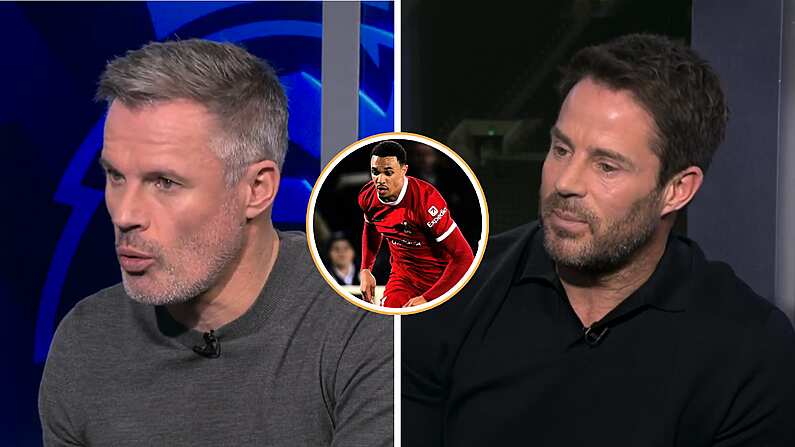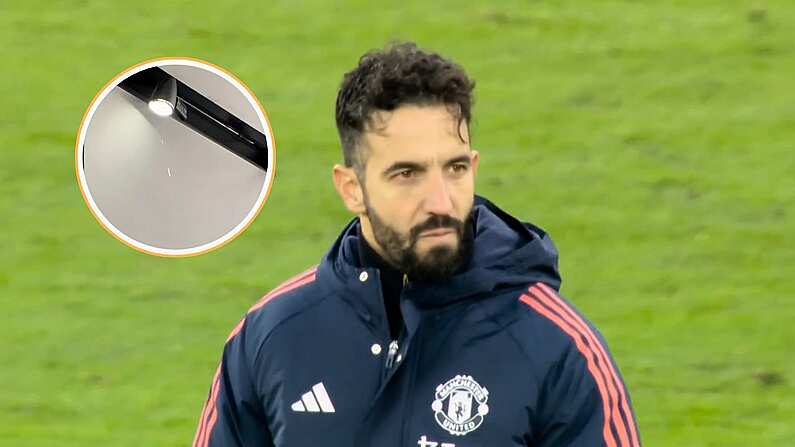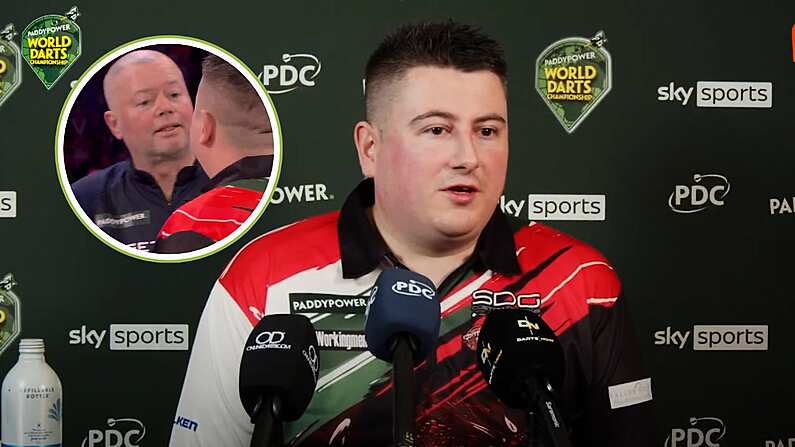Croatian football is in crisis.
In November 2014, unknowing Croatian football fans who sat down to watch the nation's sacred league derby between Hajduk Split and Dinamo Zagreb were perplexed by the scenes which greeted them on their television screens; the 38,000-capacity Maksimir Stadium in Zagreb was almost entirely empty, with fewer than 1,000 fans dotted throughout the stands.
It should be pointed out that within the current Croation football climate, the fixture, despite its former lustre, is no longer guaranteed to fill such a venue. However, even the 2,000 Split fans who were expected to travel 400km north were nowhere to be seen as kick-off approached.
The home players duly took to the pitch and observed a conventional pre-match minute's silence in memory of the Fall of Vukovar - a tragic event from the Croatian War Of Independence. The Hajduk players never emerged from the tunnel. By the time anybody realised what was going on, Dinamo Zagreb began to carry out a training session on their own pitch while Hajduk Split headed back south to their home city without fulfilling the fixture.
As it would transpire, according to Croation football scribe Aleksandar Holiga, preparations were already underway for a celebration back in Split, with 8,000 fans greeting their players in Poljud Stadium, lighting flares, singing and jumping as if they'd beaten their bitter rivals in a cup final.
It was subsequently reported that a small number of travelling Hajduk fans had been denied tickets because they were on a what Holiga describes as a 'black list.' The majority of travelling Torcida, however, were held up by the police on the other side of Zagreb. When it transpired that many fans would be denied entry to the ground, the rest of the travelling supporters simply refused to attend the game, opting instead to return their tickets. Those being obstructed by authorities were advised of the situation and joined their comrades on the four-hour journey home.
Hajduk chairman Marin Brbic said:
Hajduk is a people’s club. We are a club of our members, our fans, and it’s our duty to stand by them—like they always stand by our team.
What happened in Zagreb was the last drop and we had to say that that was enough. But we all know it wasn’t just about this. We’ve been systematically targeted for a long time, because Croatian football is set up to serve one club and one man—that club is Dinamo, and that man is Zdravko Mamic.
As explained by Aleksandar Holiga on Bleacher Report, Brbic believed then-Dinamo Zagreb chief executive Zdravko Mamic had a disproportionate influence in the Croation Football Federation in his role of vice-president, maintaining that the organisation practised double standards under his guidance when it came to dealing with the nation's two largest clubs.
A vast majority of supporters share this view, because Hajduk has no representation in the key bodies of the federation or the league. To add to that, evidence shows that Hajduk fans have been sanctioned more severely than others for similar offences, like fans lightning flares and chanting insulting slogans aimed at the CFF and Mamic.
Whereas other clubs get away with small fines, Hajduk regularly have to pay bigger sums and have recently been given a one-match crowd ban just after serving a previous two-match punishment—for something that took place in an away game.
wrote Holiga in 2014.
It's not just the Hajduk fans who feel disenfranchised, however. Outrage frequently spills from the stands by way of flares and other missiles during Croatia's international fixtures, long before today's 2-2 Euros draw with the Czech Republic. It was most notable during a 1-1 draw with Italy at the San Siro two years ago - just days prior to the Dinamo - Hajduk debacle - and a game in which the Croats were performing excellently.
https://www.youtube.com/watch?v=ktwHOW6qSzY
But whilst the act of throwing flares speaks more to a planned protest at a perceived systematic failure within the CFF than an act of mindless bellendery and hooliganism, other sinister indiscretions must also be acknowledged.
Of that same game in Milan, Dario Brentin wrote (in a fantastic article):
...besides endangering other people’s lives by throwing flares and fighting with the police, the Croatian fans also engaged in even more problematic manifestations of dissent. The singing of ‘Za dom – spremni’ and ‘Ajmo Ustaše’ and the waving of several smaller posters with the letter ‘U’ – a symbol of the Ustaše, the fascist Croatian movement and the quisling Independent State of Croatia responsible for the mass murder of Serbs, Jews, Roma and Croatian anti-fascists during WWII – showed the ugly side of an infamous ritualized fan culture at games of Croatian national teams in various sports over the last 20 years.
And while much of the national football unrest and subsequent protests is led and carried out almost exclusively by the Tolcida - or Hajduk fans - Dinamo Zagreb supporters for their part, under the scrutinous rule of their former chief executive, could until recently have staked a claim to being the most systematically oppressed in Croatia; With Zdravko Mamic at the helm, Dinamo kept an ever-expanding black list of their own supporters, whereby protesting against 'the boss' was enough to get yourself banned from attending home games.
18 months ago, he decided to ban the entire section of the stadium where people chanted for his removal from the club. In solidarity, a large proportion of regulars refused to attend home games. It was Mamic's new 'personalised ticket' system, too - described as an attempt to quell violence in the stands - which saw a number of travelling Hajduk fans subsequently denied tickets on that infamous day in 2014.
Mamic builds his influence on clever institutional design in Croatian football governing bodies and a spider-like network of crony, nepotistic relations with key figures within that field. Furthermore, he has been accused of running Dinamo as a private business, having beneficial private contracts with players, installing family members in significant club positions and using the club for money laundering,
wrote Dario Brentin in Balkanist.
But after years of what was described in thethaovanhoa as "a dictatorship," Mamic stepped down from his official role in the CFF this time last year, assuming a 'mentor' position instead. Months later, he was arrested on suspicion of transfer irregularities, tax evasion and bribery. He finally resigned as Dinamo chief executive early in 2016, instead taking up the cliché advisory role.
At a separate trial earlier this month relating to a brawl with a Hajduk player two years ago, Mamic was forced to attend court in Split - a city in which he is universally loathed. He was assaulted outside the court by masked men who hurled flares and smoke-bombs in his direction. Nobody was injured.
But with the man viewed as an omnipotent menace to Croatian football now out of the picture - to the naked eye at least - why the discontent amongst the Hajduk and Croatia fans we saw peppering the pitch with flares earlier today?
Because, in essence, nothing has changed.
Croatian journalist Anthony Zoric told Outside Of The Boot in 2015:
Zdravko Mamic cannot simply be replaced. For things to improve at the current federation the entire HNS board must resign. The system has been manipulated to serve the interests of Mamic and his friends.
And you can add the CFF's general arse-chancery to the melting pot to gain a more complete understanding as to why a number of Croatian fans use their side's national fixtures as a wide-scaling stage for protest.
The federation has been plagued by a number of front-page scandals in recent times; referee corruption, convictions for match-fixing and even a physical attack on Hajduk's chairman by a highly ranked CFF official are but the tip of the iceberg. Turns out John Delaney is actually grand.
Such lack of transparency and immoral practices have wreaked havoc with the national league. Dario Brentin reported that the weekend of Hajduk's walk-out in Zagreb in 2014, just 65,000 fans attended five top-flight fixtures. He also explained that, while many fans viewed - or still view - Mamic as a poisonous figure within the Croation sport, it's the underhanded culture which he epitomises that drives fans berserk.
Brentin writes of the fans' perspective of club football in Croatia:
Many of the organized football fans associate the following issues with ‘modern football’: the loss of ‘authentic’ identity through the introduction of ‘big business’ and shady tycoons into football, the increasing commercialization and handling of football as an entertainment business, the treatment of football fans as customers or in some cases as enemies, etc.
It's a feeling echoed by many - just look at the state of Manchester United's movie deal, for example - but the difference is that Mamic has left behind him a Croatian league and national team which are two of the most corrupt and broken institutions in world football, which brings us to today's fan indiscretions in Saint Etienne.
Fans throw flares, explosive on pitch during Czech Republic-Croatia match. https://t.co/O7x3qJoqHS #Euro2016 pic.twitter.com/Y05QXMaJU5
— FOX Soccer (@FOXSoccer) June 17, 2016
It has since surfaced on Reddit that, two hours prior to kick-off, Hajduk fans released a seemingly sophisticated plan to launch their protest - again confirming that these are orchestrated cries for attention rather than random acts of hooliganism.
All of the comments on the below picture translate as what you might describe as 'negative feedback', from fans who simply wish to see their national side do well.
It's also mentioned in the Reddit post that many Hajduk fans intend to stop supporting their local side until the leaders of the Tolcida leave, because they encourage the beahviour we saw delay today's game against the Czech Republic.
In the midst of today's crowd trouble, a voice over the address system in Saint Etienne pleaded with the Croatia supporters to “leave the stadium and don't embarrass our country.”
UEFA will open disciplinary proceedings against Croatia on Saturday after their supporters threw at least 15 flares on to the pitch and fought among themselves at Stade Geoffroy-Guichard.
Hat-tip to Outside Of The Boot, balkanist.net and Bleacher Report, whose articles on the topic are all well worth a read.










